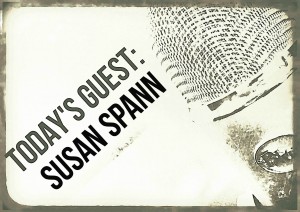traditional publishing
Please welcome Greer Macallister, author of historical suspense (The Magician’s Lie), to Writer Unboxed as a regular contributor! We’re thrilled to have her with us.
My debut novel, The Magician’s Lie, was released in hardcover almost a year ago, on January 13th — the very same day as another debut: Paula Hawkins’ thriller The Girl on the Train.
Since then, The Girl on the Train has sold 4 million copies. The Magician’s Lie… has not.
Why and how does a book catch fire? It certainly helps to have a publisher giving the book a full-court press, as Riverhead did with Girl, but there have been plenty of debut novels positioned just as carefully, and funded just as generously, with nowhere near the results. (If you’ve read The Gargoyle, the ‘It Novel’ of 2008, please raise your hand.)
We all go into this business hoping our book is going to be The One. It almost never is.
We get the luck we get.
Not that I consider myself unlucky. Quite the opposite. While The Magician’s Lie hasn’t sold 4 million copies, it has done quite well — excellent reviews, good sales figures, flattering honors. And it’s passed the ultimate test for most writers: it’s done well enough for my publisher to buy my next book.
Much of that, like much of Paula Hawkins’ success, is luck. It landed on the right person’s desk on the right day. The readers at Target liked it enough to make it a monthly Book Club Pick. The guest judge at Book of the Month chose it as a main selection, and that guest judge happened to be Whoopi Goldberg. If it had come out in a different month, or if there had been different people making these decisions, my luck would have been different. Bad instead of good. Or not even bad, just nonexistent.
Which is why I tell writers: Take your luck. But I also tell them this: make your luck.
There is so much in this business we can’t control. But there are certain things we can. We can make each book the best it can be. We can seek the advice of experts and build the right team — everyone from agents and editors to beta readers and booksellers — to get a very good book into the hands of as many people as possible.
And if good luck comes your way, you have to help build on it. Tackle the edits. Do the interviews. Move heaven and earth to go on the tour. Spread the word any way you can. Say yes, say yes, say yes.
Four-leaf clovers, like anything else green, die without water.
Read MoreSee If I Can Practice What I Preach
Personally I’ve never cared for the word “succinct.” Maybe you’ve noticed. Well, of course you have.
But the terrifying events in Paris last weekend brought home something I’d been trying to clarify for myself for some time. It’s about how we handle issues of craft and industry in publishing. And it’s my provocation for you today.
What if we’re over-thinking, overwriting, overdoing just about everything we touch in publishing? Because we can.
What if we’re not doing it but instead are just doing stuff about it? What if the sparks are flying because we’re grinding, grinding it all into the ground?
As I watched my former colleagues at CNN International struggling to handle the #ParisAttacks coverage, I knew exactly what they were going through. On the ground, it’s often called “incremental coverage.” And it’s a gruelling, brain-blistering exercise—much harder than it looks and involving hundreds of people you never see. Everyone must try to get the latest, “the very latest!” bit of news. I do mean “bit.” As in scraps. You see one word or a short phrase from a French official churned over and over in fonts. That’s because that’s all there is. Nothing else new. Each death and injury number offered by an official source is chanted over and over. Everyone tries to avoid speculation, everyone fails. Everything carries Breaking News graphics, very little is truly breaking. In a major story, this exhausting bid for new, fast, and anything head-turning can go on not for hours but for days. Days.
Sustaining this is incredibly hard. You’re trying to hold an audience’s attention with small new elements of detail when there are 600 channels above you on the dial and 200 below you. And just about every one of those other channels has something less upsetting to offer than the unforgivable violence perpetrated on those innocent victims in Paris by such unholy assailants. Many network-news employees will define their careers by the high-relief of these stories. They’re the only times the 24-hour news services really blow through the roof on ratings, of course. A nightmare like the one we saw a week ago can wipe the goofy smile off any Candy Crusher’s face and draw even the silliest of society to our glowing screens of horror.
Rightly so. As Miller had it, “Attention must finally be paid” to such inexcusable violence. For all the missteps and vamping of this coverage, these are modern news coverage’s most powerful moments. And so overdone. By the time one of these cycles has been so agonizingly flogged—albeit for all the right reasons—viewers are numb. Our coverage of the Second Coming will make us all yawn before it’s over.
Read MoreThe transformation of publishing as a result of the proliferation of e-books and self-publishing is an inescapable topic these days. As well as making every writer face the devil’s choice of whether to go traditional or go independent, this transformation has also created a new spinoff industry–you—the writer and author. Providers of author services are a growth sector of the economy.
As the director of advertising on Writer Unboxed, I’ve been thinking about how the development of author services further changes the job of being an author, adding responsibility for being an educated consumer of those services, but also what it means for blog owners.
Writing advice and advisors have always been around, but now, as well as ‘how-to write’ guides, there are DIY manuals for designing your own cover, formatting your own book, editing your own book, managing your own promotion. If you don’t want to go the full DIY route, you can buy a bunch of author-targeted software or you could hire some help–book cover designers, editors, book promoters, book formatters, packaging agencies, book advertisers, booksellers, marketing advisors, story ‘doctors’, indexers. The list could go on.
Many of these services have existed for a long time, but the providers traditionally worked directly with publishers. Some of these services are brand new, a product of the new e-book revolution.
All of them would like to gain your attention. Yes yours, because you, dear Writer Unboxed reader, are their niche market. Their intended clientele. Their bread and butter. And, yes, sadly, in some instances, their mark.
As with any industry, many of these service providers offer a valuable service and expertise, care about their reputation, and operate according to above board business practices. As with any industry, where there is money to be had, some of the service providers are out for the money. By whatever means they can get it.
Gaining your attention, let alone your patronage, is not easy. In a business where the standard legend is that all it takes to get published (and make millions) is to crank out some content, generate a file, and put it up for sale at one of the on-line booksellers, these author service providers not only have to reach their prospective clientele, they have to convince them that hiring a service provider is more valuable than DIY’ing it. Most people know when they need a lawyer. Not everyone knows when to hire a developmental editor, content editor, copy editor, or proof reader. Whether to hire a book packager or software that will generate the proper format for an ebook ‘automatically’ is equally unknown. That means even legitimate service providers have to be aggressively persuasive about the need for their services. That can make their promotional tactics more extreme–promising more for less or using gimmicks to get the prospective client’s attention.
For the author, this makes it absolutely critical to do due diligence before hiring any service provider or buying any service product. Ask for referrals from previous clients. Ask for a sample of work before you buy the whole package. Be clear about what services are and are not being provided. Advertising is a means of getting your attention, it is not a contract, a promise, a certainty.
Writer Unboxed is front and center […]
Read More
I recently stumbled across something called Parkinson’s Law. Originally expressed in a humorous essay published in the mid-1950s, this law states that “work expands so as to fill the time available for its completion.” The author, Cyril Northcote Parkinson, based this observation on his experience in the British Civil Service, and he intended this “law” to be interpreted as satire, poking fun at the highly bureaucratic manner in which his government coworkers functioned.
This law became popularized in recent years by Tim Ferriss, a self-described “human guinea pig” who rose to prominence with his best-selling book, The 4-Hour Work Week. In that book, Tim embellished Parkinson’s original language a bit, stating that “Parkinson’s Law dictates that a task will swell in (perceived) importance and complexity in relation to the time allotted for completion.”
But Tim wasn’t being satirical. A notorious “life-hacker” who is always looking for ways to do things faster, better, and easier, Tim is a big advocate of minimizing the time he allots to specific tasks. He emphasized Parkinson’s Law in his book, because he feels that when it’s accepted passively, it’s a mindset that works against us, making us far less efficient.
NOTE: Before I go any further, this article is *not* an endorsement of Tim Ferriss and his ongoing “life experiments.” I find him a very intelligent and intriguing person, but I also find some of his opinions and ideas to be… well, I guess “batshit crazy” is an apt term. But he’s definitely a thought-provoking guy, and I think the world is richer for having such an articulate and outspoken presence within the Zeitgeist. And I do think Tim makes some powerful points, some of which I’ll share in this post.
Parkinson’s Law and heavy drinking
I’ve definitely witnessed both the good and the bad sides of Parkinson’s Law. I have an old friend I’ll call Dave, an extremely talented guitarist who built an elaborate recording studio in his home. A very creative guy, Dave would spend countless hours working on original songs, some of which I played drums on. But I noticed he would get so caught up in making small tweaks to the parts he’d recorded, that he hardly ever actually finished a song.
The most extreme example of this was when I saw him after about a five-year hiatus during which our paths had not crossed. After exchanging some enthusiastic greetings, Dave said, “Keith, you gotta hear the latest version of that song you played on the last time you came over to my house. I just added some really cool parts to it, and it’s really coming along nicely!”
In nearly five years, my friend hadn’t yet finished a three-minute song that I’d frankly forgotten about. This was definitely a case of a task expanding to fill the time allotted to it – which in this case was all the time in the world.
Read MoreIf you missed Part 1 of my interview with BookBub’s Industry Marketing Manager–or if you have no idea what BookBub is–click HERE, then come back. Today I’ll wrap my two-part interview with BookBub’s Diana Urban.
But first… Something unexpected and fortuitous happened on the way to seeing this interview published. My publisher, Crown, decided to run a BookBub on my second novel, The Moon Sisters, and initiated a temporary price drop. That BookBub goes live today, so I orchestrated things here at WU so this post could go live today, too.
‘Show don’t tell,’ right?
Below is a screen capture of stats for The Moon Sisters on Amazon, taken on 9/17, the day before the BookBub. Just so you have all of the facts, my Amazon rank before the e-book was put on sale on 9/13 was 240,000. It dropped to about 6,000 after the sale began and I ran a BookSends promotion. I’ve also promoted over social media, but nothing too extravagant or repetitive.
This is where things stood on Barnes and Noble as of 9/17:
This is the second time Random House has run a BookBub for The Moon Sisters. The first time was very succesful–the eBook reached #10 in Nook books at Barnes and Noble, and #1 in the Mothers and Children fiction category on Amazon and #116 overall. If you’d like to follow along today, you’ll see for yourself what happens to a book’s numbers on the day of a BookBub; you can watch The Moon Sisters’ pages at Amazon and Barnes and Noble. BookBub’s daily email usually lands around 10-10:30 EST, and the effect is not immediate but, well, you’ll know it when you see it.
Numbers update (9/19), for interested followers:
Within 24 hours of the BookBub for The Moon Sisters, the book reached #61 in Kindle books on Amazon (an increase of over 22,000%). It was again #1 in the Mother’s and Children fiction category, #3 in Psychological Thrillers, #3 in Coming of Age fiction, and #5 in Family Life fiction. It reached #13 at Barnes & Noble in Nook books, #13 in Kobo, and #49 in iBooks.
Without further ado, the second part of my interview with Diana Urban. Enjoy!
The Writer Unboxed / BookBub Interview, Pt 2
TW – Q16: In terms of author sales following a BookBub, is there a point where a given book, series, or author starts to experience diminishing returns with BookBub promos, and if so how can that be avoided?
BB: Each genre has anywhere from hundreds of thousands to millions of subscribers. Books sent to these massive and highly engaged lists typically experience a significant spike in downloads and revenue within the span of a few days. This often leads to increased retailer rankings, better performance in recommendation algorithms, and even hits on major bestseller lists like The New York Times or USA Today. This increased visibility usually gives rise to even more downloads from readers who find the title through these other outlets. These extra sales beyond those generated by BookBub subscribers are what we call the “halo effect.”
Independent author Cheryl Kaye Tardiff is a great example of this. Here is a graph showing book sales of her thriller […]
Read More- « Previous
- 1
- …
- 6
- 7
- 8
















